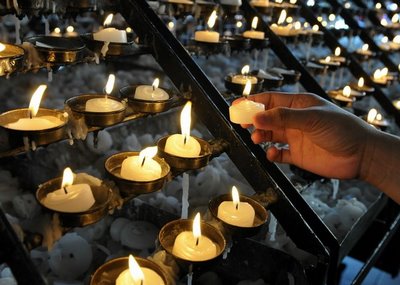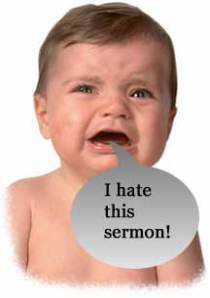In the past few days, both the New York Times and the Huffington Post have posted stories about the death and obituary of Jane Lotter, a freelance writer and editor from Seattle. The self-authored obituary has “gone viral” on social media sites, according to Huffington Post columnist Carolyn Gregoire, principally on account of the moving way in which she described the significance of her own life in the face of her impending death. I highly recommend reading this moving obituary, if for no other reason than it is a beautifully written tribute to a beautifully lived life.
For Christians, however, it raises a few rather uncomfortable questions. As the final addendum of the New York Times obituary makes clear, Lotter “took advantage” of Washington’s Death with Dignity Act, a law which the Times could not help but qualify as “compassionate.” The obituary itself mentions nothing about the manner in which Lotter died, though the Times takes pains to describe it in detail:
On July 18, the couple and their two children gathered in the parents’ bedroom. Ms. Lotter asked to keep in her contact lenses, in case a hummingbird came to the feeder Mr. Marts had hung outside their window. The last song she heard before pouring powdered barbiturates, provided by hospice officials, into a glass of grape juice was George Gershwin’s “Lullaby.” Then she hugged and kissed them all goodbye, swallowed the drink and, within minutes, lapsed into a coma and died.
The death is portrayed as entirely consistent with the love of life which Lotter so beautifully reflects in her parting words: “I was given the gift of life,” she writes, “and now I have to give it back.”
This is hard. But I was a lucky woman, who led a lucky existence, and for this I am grateful. I first got sick in January 2010. When the cancer recurred last year and was terminal, I decided to be joyful about having had a full life, rather than sad about having to die.
The power of the obituary—the reason, I dare say, it has gone “viral”—is the way in which it reveals the beauty of world which this woman inhabited, and the beauty of her life as she herself has described it. What could possibly be wrong with this way of facing one’s death? How could one imagine the alternative of gradual decline as in any way preferable to the controlled, dignified way in which this woman determined the conclusion of her life?
With the expansion of “dignified dying” laws across the world, Christians are going to be faced with more and more of these cases, and challenged to reply how their hidebound commitment to “natural death” could possibly be more human and beautiful than these kinds of scenarios. What are Christians to say in response?
Let me first say that the challenge is not easily met, since the essence of the conflict is not so much whose principles are more in line with moral autonomy or natural teleology, but rather whose world is the more beautiful. The challenge posed to Christians of cases like Jane Lotter’s is basically, “how could your practical guidelines on how one is to die possibly produce a death more beautifully lived out than this one?”
I have to admit that I was almost moved to tears by Lotter’s declaration of love for her husband and children. “I love you up to the sky,” she writes to her husband of 30 years. To her two daughters she writes, “I love you so much, and I’m so proud of you. I wish you such good things. May you, every day, connect with the brilliancy of your own spirit.” In the face of such goodness, such devotion, could one question her chosen manner of death? What are Catholic Christians to say?
The case cannot help but draw lines. Usually empathy and fellow-feeling smooth over most of the differences in worldview which we encounter with those around us in this highly pluralistic society. However, a real danger lies in following this fellow-feeling to the point of denying that there is any real difference in worldview in the first place. An obituary like this one is a prime example of how powerful that kind of fellow-feeling can be. How could one possible begrudge her her chosen manner of death?
Yet the divergence in worldview remains, and it is just as all-determinative in this case as it is in the case of the suicide who is not as eloquent and grateful for life as Jane Lotter was. For as admirable as this woman is, it still remains the case that she clearly presumed the last word on her life—who she was and what she did—was hers. That surely is the decisive point of departure between her manner of facing death and the Christian’s.
For at the bedrock of the Christian life is the fundamental conviction that our lives are not ours, and therefore we cannot claim to be their sole narrators, even and especially at the moment of our deaths. Who we are and what our lives mean is not something of which we ourselves could ever give a truthful account, for that identity and meaning lies principally in the lives of those to whom we extend our love, and ultimately in the eternal heart of the One who has given us our life.
And so, as taken as I am with Jane Lotter’s obituary, I am convinced that Christians should never write their own, no matter how dull the newspaper hacks make it out to be. There is another Narrator who has written our true names—our true selves—into the palms of his hands (Is 49:16).





Mr. Clark certainly appears to be a Christian with deep convictions, and this is certainly commendable. However, I am always struck when I see a Christian utilize a moment of judgment of another person’s life to demonstrate their own moral convictions. It states quite clearly in the bible multiple times free from the ambiguities of the many translation versions that god is the ultimate judge of man…..and not another man. Expressing one’s perspective on what you view to be an immoral act does not of necessity have to be paired with judgment….in this case directly…..of another person. There’s a grace in following this path, and I would say that it’s a godly grace…as noted very directly in the bible.
Lotter’s obituary and the media’s celebration of it are themselves embodiments of a particular judgment that has been proposed to the public. Lotter makes judgments about her own life, and those judgments have been ratified and extended by the media, which has “utilized” her death in their own way to promote assisted suicide laws. In fact, I first found out about the obituary because it was listed as a news alert for the term “euthanasia.” That is the lens through which this story is seen, and it would be naive to think otherwise. So yes, the story is one that calls out for judgment one way or another. At the same time, though, I tried to express how sympathetic I am to Lotter, and how beautifully I thought her obituary was written. Yet my point was that, as you say, God is the ultimate judge. Not once did I describe Lotter’s manner of death as “immoral”; that word conceals more than it reveals. Lotter’s self-induced death was inconsistent with Christian teaching, however, and I think it is incumbent upon Christians to examine that teaching when it conflicts with the apparent beauty of deaths such as Lotter’s. The one thing Christians must not do, however, is simply shrug these reports off as merely the private decisions of individuals. That sort of quietism may pass itself off as merciful and compassionate, but it is ultimately a betrayal of charity.